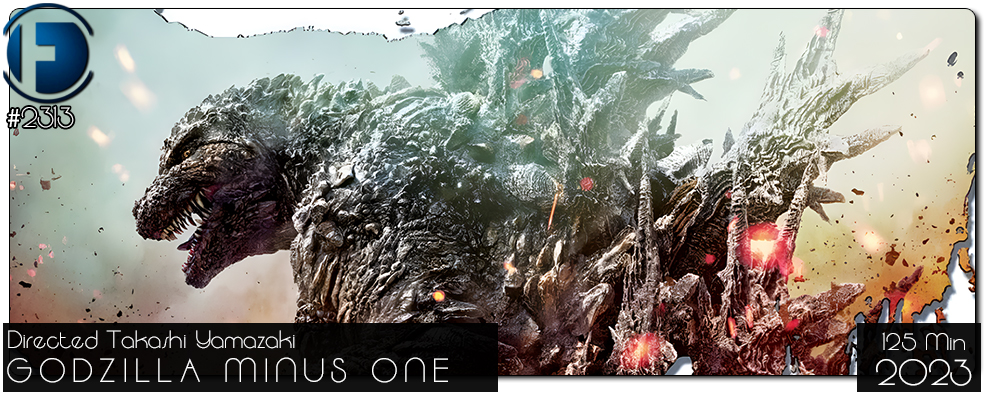Movie Review – Godzilla Minus One
Principal Cast : Ryuosuke Kamiki, Minami Hamabe, Yuki Yamada, Munetaka Aoki, Hidetaka Yoshioka, Sakura Ando, Kuranosuke Sasaki, Sae Nagatani, Miou Tanaka, Yuya Endo.
Synopsis: Post war Japan is at its lowest point when a new crisis emerges in the form of a giant monster, baptized in the horrific power of the atomic bomb.
********
Following boffo global box-office success, becoming the most successful Toho produced Godzilla film of all time, and snagging an Academy Award for Best Visual Effects, not to mention attaining a groundswell of opinions declaring it the best Godzilla film since the 1950 original, there is very little left for this cinematic triumph to accomplish. Incredibly sincere, warmly human and equally utterly devastating, Godzilla Minus One is not only a low-budget technical triumph (the film’s reputed budget was a mere $10m) but a narrative one as well. The Godzilla franchise of recent times, more specifically the big-budget US versions, to which this has no relation, has become less about the people involved, and more focused on becoming a singularly catastrophic destructo-fest, something I’ve found entirely tedious over the years; thankfully, this Godzilla entry returns us to well-developed human characters engaging with an utterly terrifying nuclear monster in a manner that’s satisfyingly emotional and deeply moving.
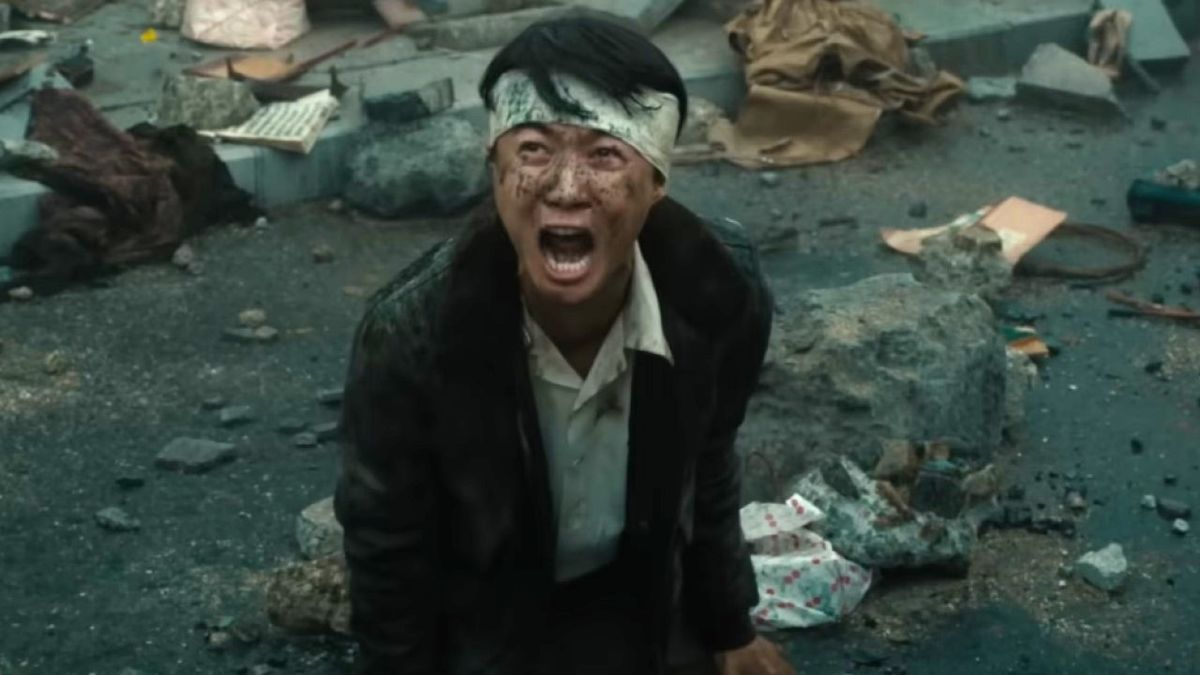
Godzilla Minus One is a gripping kaiju film set in the aftermath of World War II, focusing on the challenges faced by Japan as it emerges from the devastation of nuclear warfare. The plot centres around Koji Shikishima (Ryuosuke Kamiki), a former kamikaze pilot who struggles with guilt and a sense of purposelessness after surviving the war. As Japan attempts to rebuild, Koji tries to find a new path in life, grappling with his past and the societal upheaval around him. Amidst this fragile recovery, Japan is rocked by the sudden emergence of Godzilla, a monstrous creature awakened and mutated by the residual effects of nuclear radiation. Godzilla’s appearance brings further chaos and destruction to an already battered nation, symbolising the lingering horrors of atomic warfare. Koji, along with a group of other survivors including the embittered Sumiko (Sakura Ando), Kenji Noda Hidetaka Yoshioka), a scientist determined to understand and stop Godzilla, and Noriko (Minami Hamabe), a young woman who has lost her family to the beast, becomes embroiled in the desperate effort to thwart the monster’s rampage. As Godzilla wreaks havoc across the countryside and threatens major cities, the group must navigate the challenges of limited resources, governmental disarray, and their own personal demons. Koji’s journey is one of redemption as he seeks to make amends for his past actions and find a new sense of purpose. Kenji’s scientific quest is driven by a mix of intellectual curiosity and a desire to prevent further suffering, while Noriko’s struggle embodies the personal losses experienced by countless individuals.
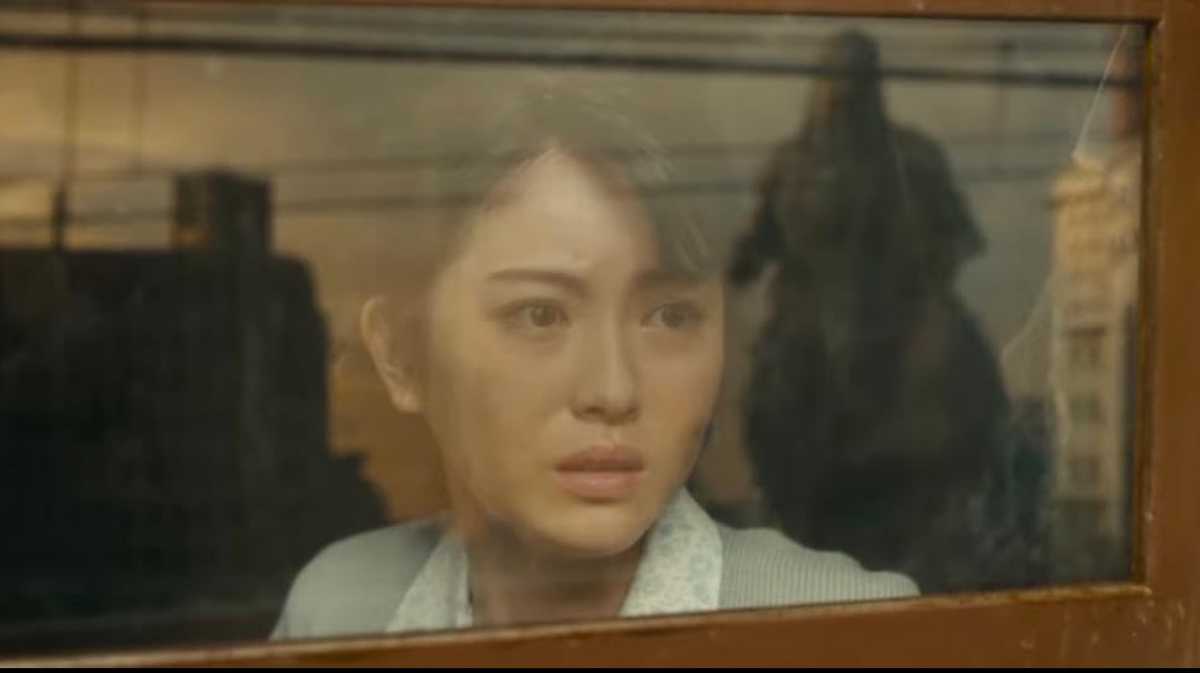
One of the crucial elements too few monster films get right is the viewer’s connection to the human characters within it. Sure, there’s a place for simplistic point-and-scream clichés in these kinds of films, but rare is a subgenre entry that seeks to tap into a deeper emotional connection, and this one delivers just that. Written by the direct, Takashi Yamazaki, Godzilla Minus One’s postwar setting digs into themes of loss and grief from a nation that lost the conflict, but also a fair degree of survivor’s guilt in the form of one-time kamikaze pilot Shikishima, for whom the running arc of the film is that his war “is not over”. The gradual rebuilding of a shattered Japanese society following the war is really well depicted, and Shikishima’s glassy-eyed sense of deep shame at his inability to go through with his kamikaze mission anchors the film’s deeply sad emotional heft. Shikishima’s relationship with love-interest Noriko, played by a terrific Minami Hamabe, is the secondary arc viewer will connect to, both characters thrust together by circumstance and fate and yet almost implicitly destined to be together.
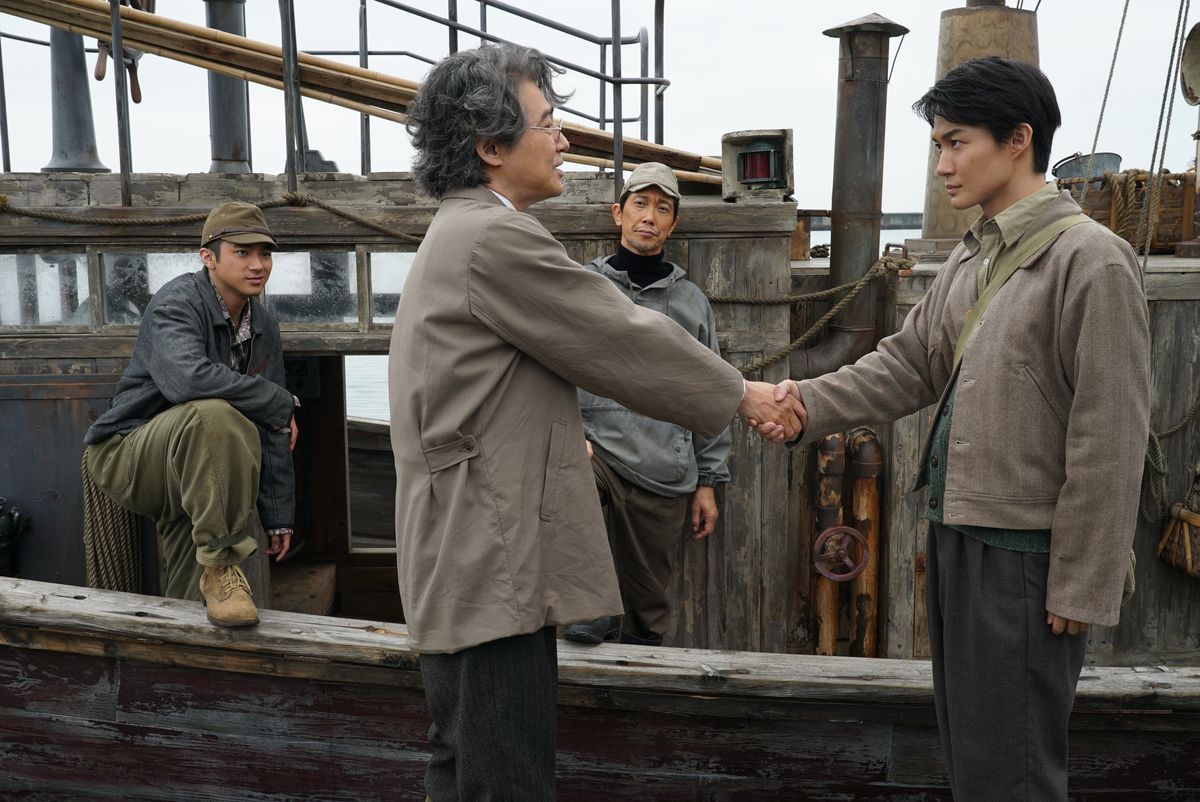
One of the main things I liked about Godzilla Minus One is that all the major human characters have identifiable and coherent story arcs, with a relatively small supporting ensemble that inhabit their respective roles with presence and truth. The “comic relief” character is legitimately comic at times, balanced with the more serious elements involved – the science boffin, of course, might as well have Mr Exposition tattooed on his forehead, while the stiff-backed navy general archetype never strays outside the admittedly well-rendered outlines. The characters might strike one as subgenre stalwarts but they’re given growth within themselves, and not just around the principal characters. Each part of the ensemble has a resonance within the main plot, and a payoff of some description by the end, which is far too infrequent a case with many popular Americanised blockbusters of late. I appreciated the quieter, introspective moments just as much as the bombastic ones.
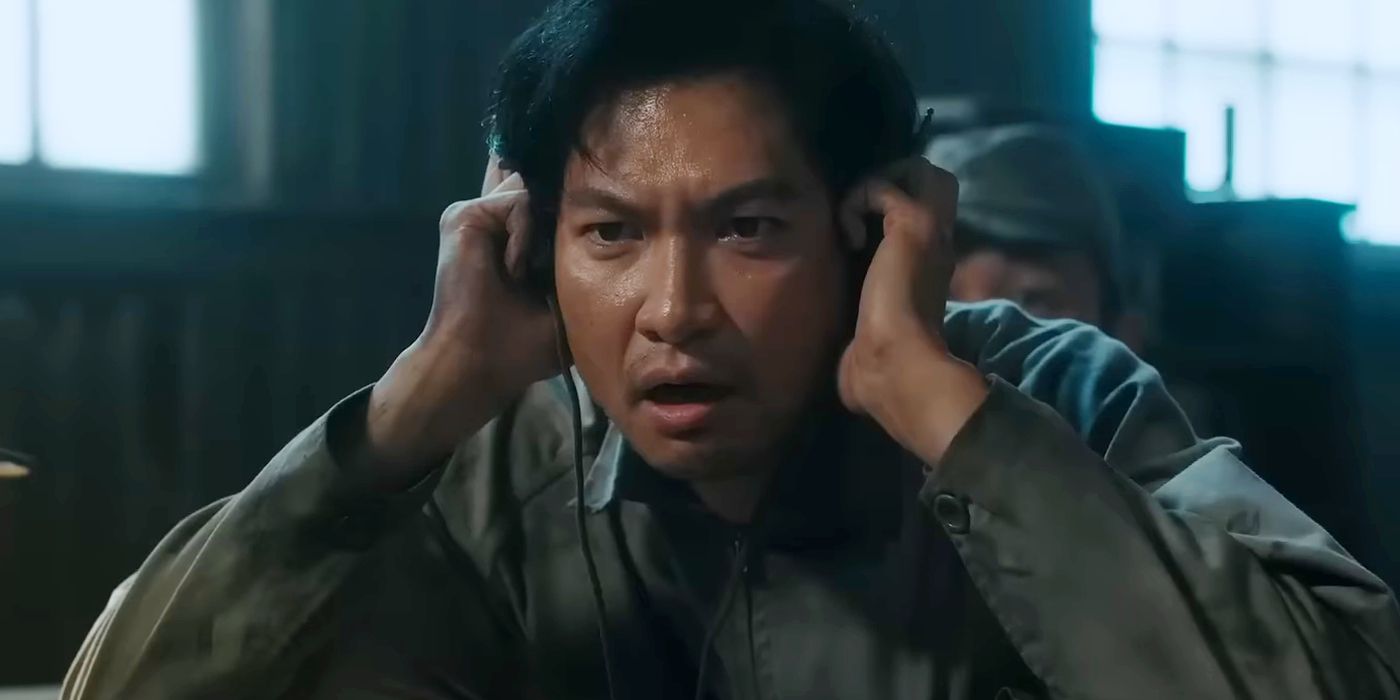
So yes, Godzilla Minus One is quite an emotional story, to the point I definitely teared up by the end in one of the film’s better plot twists. You’d think that might be enough, but no, they had to go a put together some truly awe-inspiring visual effects sequences and turn Godzilla into perhaps the most singularly terrifying version of himself yet – in keeping with the Toho version’s iconic silhouette, this ‘zilla sports his chicken-thigh legs and cumbersome, slow-moving gait, alongside a supremely chilling nuclear breath beam (which, in context here, is absolutely devastating) and a shark-like presence when lurking beneath the waves. Godzilla’s attack on the city of Ginza, an area of Tokyo heavily damaged during the final stages of the past war, and now springing back to life, is just brutal for the toll inflicted on the population, and the VFX are easily on par with higher budgeted Hollywood blockbusters. Admittedly the plot to defeat Godzilla feels like it’s stretching credibility too far (for a Godzilla film, anyway) but by the time the film Independence Day’s itself into a crescendo you’re kinda not really caring, but in re-watching this one in future, parts of it might seem a tad silly.
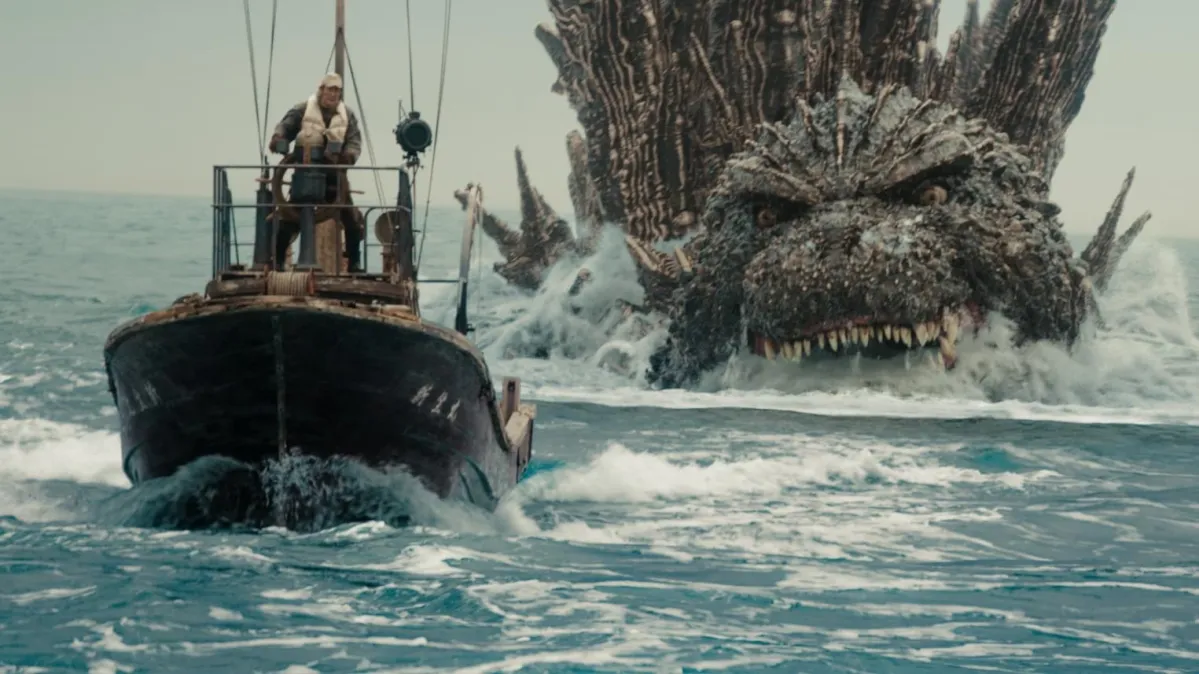
Godzilla Minus One is most definitely worthy of the many plaudits that have come its way. It’s deeply moving, emotionally complex, and thrilling as only the best Godzilla films can be, only moreso than is typical. Led by a terrific ensemble cast, solid direction and brilliant production values, not to mention a wonderfully impactful screenplay, not only is Godzilla Minus One one of the best Godzilla films ever made, it’s arguably one of the best films of the year, period. Richly rewarding curious newcomers and franchise devotees alike, this one comes highly recommended.

